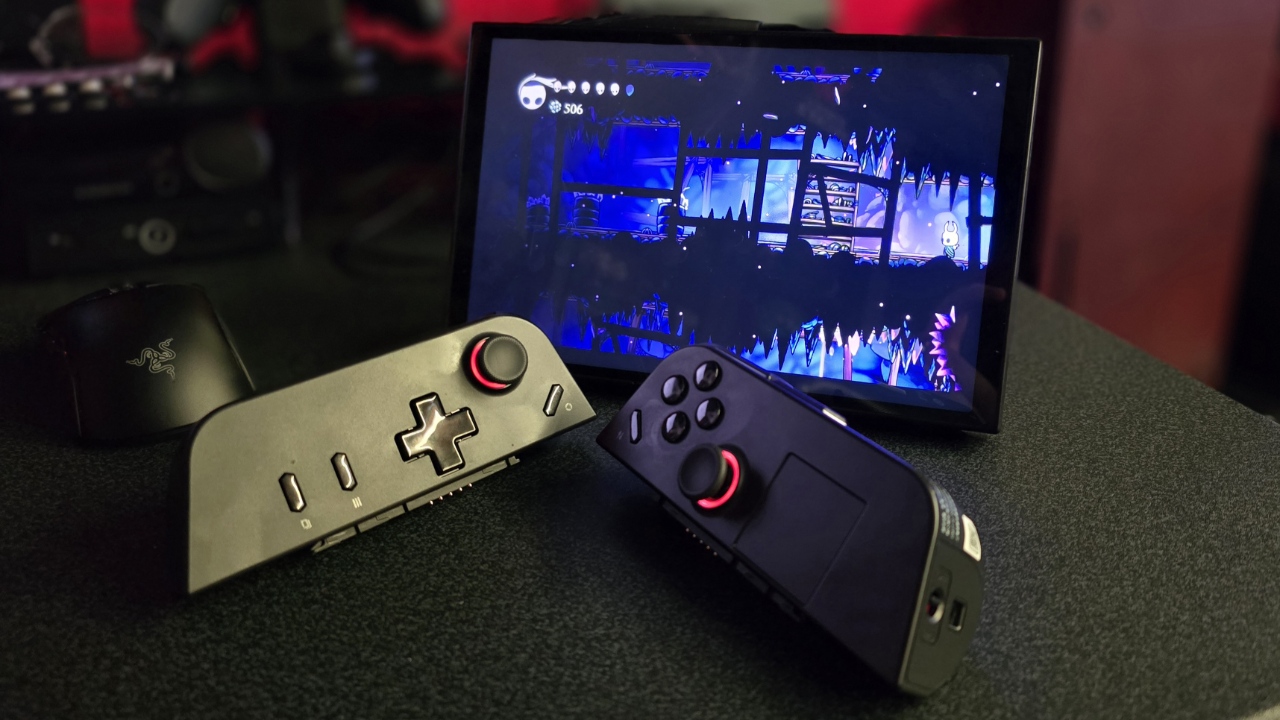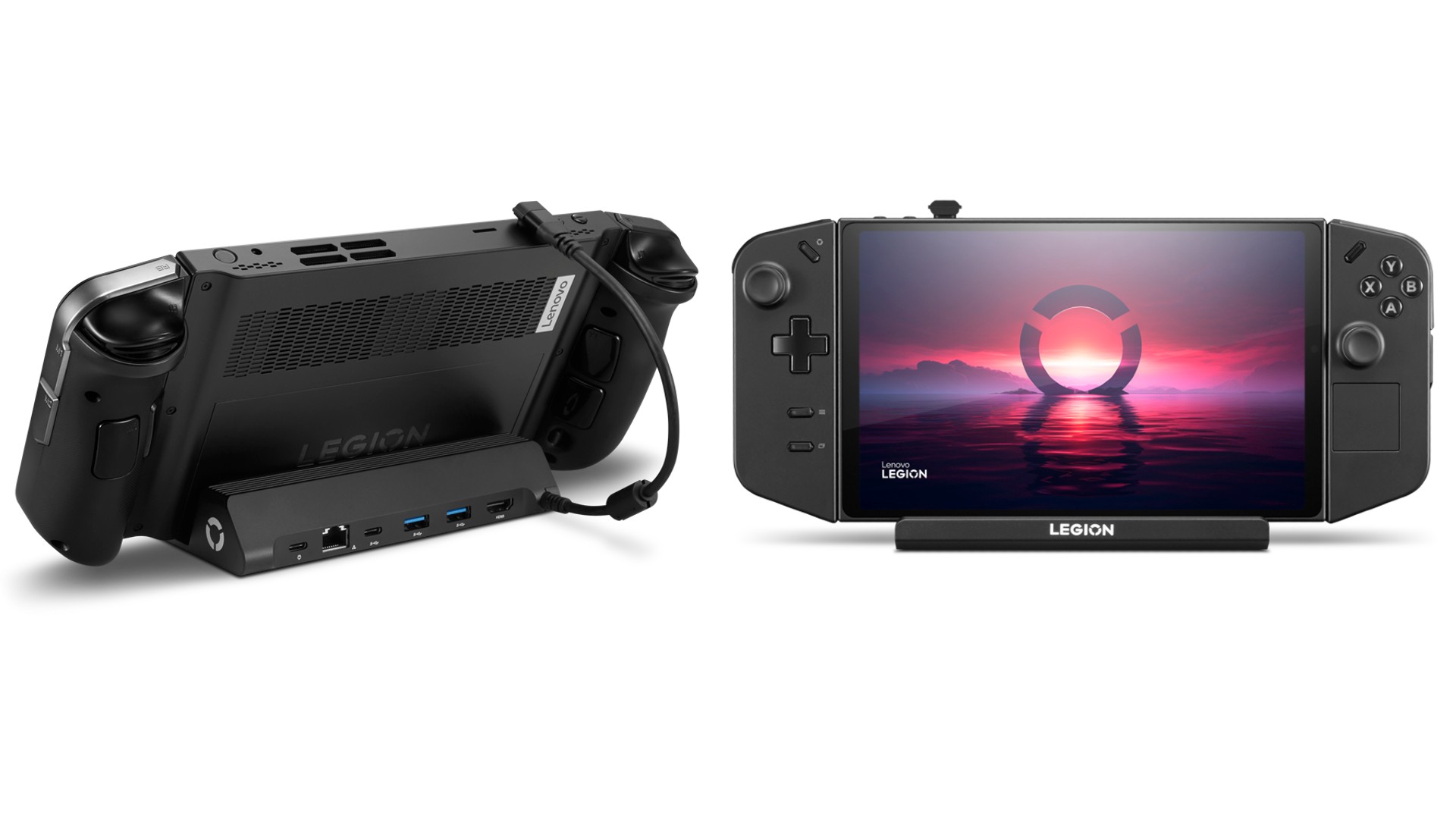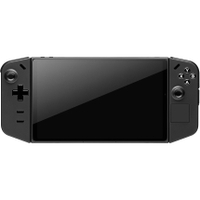I test every PC gaming handheld on the market, and my favorite top pick is at its best price ever thanks to an Early Black Friday deal
Down from its typical $699.99 asking price, the Lenovo Legion Go is now $499.99 at Best Buy.
Recent updates
UPDATE (October 28, 2024): Lenovo Legion Go deals are now live on both Best Buy and Amazon, though the discounts are for the 512 GB model. This piece has been updated to ensure you get the best deal possible and with information related to the item discounted currently.
I have used every major handheld gaming PC on the market today, including everything from the GPD Win of yesteryear to the Steam Deck, to the ASUS ROG Ally, and now the Lenovo Legion Go. And as an early Black Friday deal, the Lenovo Legion Go (512 GB model) is currently $200 off, making the deal far, far sweeter.
The Lenovo Legion Go and the ASUS ROG Ally both use the same Ryzen Z1 Extreme processor, making game performance near identical. The ASUS ROG Ally does have a VRR display, giving it the appearance of smoother frame rate performance in some situations, but I prefer the Lenovo Legion Go overall. Why? Much bigger display at 8.8" inches, complete with a higher max resolution. A kickstand, which makes the Legion Go almost as versatile as a laptop, giving you the option of doing a bit of work on the go (and yes, I have used it for this purpose!). It also has detachable joysticks, one of which can double up as a mouse. Unlike the ROG Ally, it also includes a trackpad for the many PC games that occasionally expect a pointer to be present.
Lenovo Legion Go (512 GB)
Was: $699.99
Now: $499.99 at Best Buy
"The Lenovo Legion Go is a potent portable gaming PC that can also double as a mini workstation owing to its kickstand, multiple USB-C ports, and huge 8.8" display. On this thing, you can run modern games plugged in (with some compromises) such as Elden Ring and Cyberpunk 2077, or go portable with lighter games like Hollow Knight with roughly 3-4 hours of battery life." — Jez Corden
Windows Central Lenovo Legion Go review: ⭐⭐⭐⭐
CPU/GPU: AMD Z1 Extreme. RAM: 16GB. SSD: 512 GB. I/O: 2x USB-C, SD card. Display: 8-inch, 1200p. Connectivity: Bluetooth, Wi-Fi.
✅Great for: Playing heavy-duty PC games while plugged in, and lighter games on battery while on the go.
❌Don't buy if: If you need more storage, since a 1 TB is available (though not discounted currently).
💰Price check: $499 at Walmart
Why I prefer the Lenovo Legion Go over other PC gaming handhelds

Processor: AMD Ryzen Z1 Extreme w/ integrated Radeon Graphics
OS: Windows 11 Home
RAM: 16GB
Storage: 512GB SSD or 1TB SSD (reviewed at)
Display: 8.8-inch 16:10 QHD (2560 x 1600) IPS touchscreen
Refresh rate: 144Hz
Ports: 2x USB-C 4.0 (DisplayPort 1.4, Power Delivery 3.0), 1x MicroSD card reader, 1x 3.5mm headphone jack
Battery: 3~ hours (depending on performance modes)
Size: 1.60 x 5.16 x 11.76 inches
Weight: 1.88 lbs. (~0.854 kg)
I have used (almost) every PC gaming handheld on the market, having dabbled with offerings from Ayaneo, GPD, Lenovo, Valve, and ASUS over the last few years. I find this device category to be among the most exciting out there right now, as someone who travels frequently, and also frequently battles family over TV access. The fact you can hook up these devices to monitors and larger displays over USB-C is a welcome addition too, and makes couch co-op more viable too. I often take my portables to friends' places to play games like Diablo 4 with a few cans on the side. This discounted model does have less space than the 1TB version, but that beefier option is not on sale at the moment. Regardless of if you choose 512 GB or 1TB, the storage is far faster than what an SD card could offer. Some games won't run well from an SD card, unless you prefer playing 2D and retro-styled games (and honestly, these types of devices are probably better for those types of games.)
I prefer the Windows-based devices over the Steam offering primarily because of PC Game Pass. A lot of Xbox games sport cross-save and cross-buy these days, and since I do over half of my gaming on my Xbox, having access to my save files and progress across devices is a welcome boon. I also think the Steam Deck is limited a fair bit by its horsepower. The Z1E chips in the Lenovo Legion Go and ASUS ROG Ally are significantly more powerful than what Steam is offering, leading to fewer gaming compromises in practice.
The upsides of the Lenovo Legion Go and ASUS ROG Ally is native Windows 11 support, but it's also a downside. Windows isn't exactly intuitive to use on these devices, but once you get used to it and remember that these are just laptops in a different shape, it's not so bad. They are monstrously powerful too, considering their size.

It's true that the ASUS ROG Ally is smaller, lighter, and has a VRR display giving a smoother frame performance. However, I do prefer the Legion Go overall, having used both extensively. The integrated kickstand in the Lenovo Legion Go seems like a small detail, but it makes it so much more versatile. You can essentially use it as a laptop and get some work done if necessary. The modularity of the sticks also gives it a Nintendo Switch-like usability rating. Being able to mount the screen and use sticks is far more comfortable in some situations, over staring into your lap for hours on end. The ASUS ROG Ally also has issues with its SD card slot potentially, if it gets too warm, it has reportedly warped some people's storage cards, although ASUS has tweaked the fan curves to prevent this. Lenovo's Legion Go hasn't had any such issues to my knowledge, and also sports two USB-C ports for additional docking capabilities too.
I feel like you get a lot more bang for your buck with the Lenovo offering, especially at this price point. If you want something more svelte, the ASUS ROG Ally is also $599 right now (not on sale).
Get the Windows Central Newsletter
All the latest news, reviews, and guides for Windows and Xbox diehards.

Jez Corden is the Executive Editor at Windows Central, focusing primarily on all things Xbox and gaming. Jez is known for breaking exclusive news and analysis as relates to the Microsoft ecosystem while being powered by tea. Follow on Twitter (X) and Threads, and listen to his XB2 Podcast, all about, you guessed it, Xbox!

